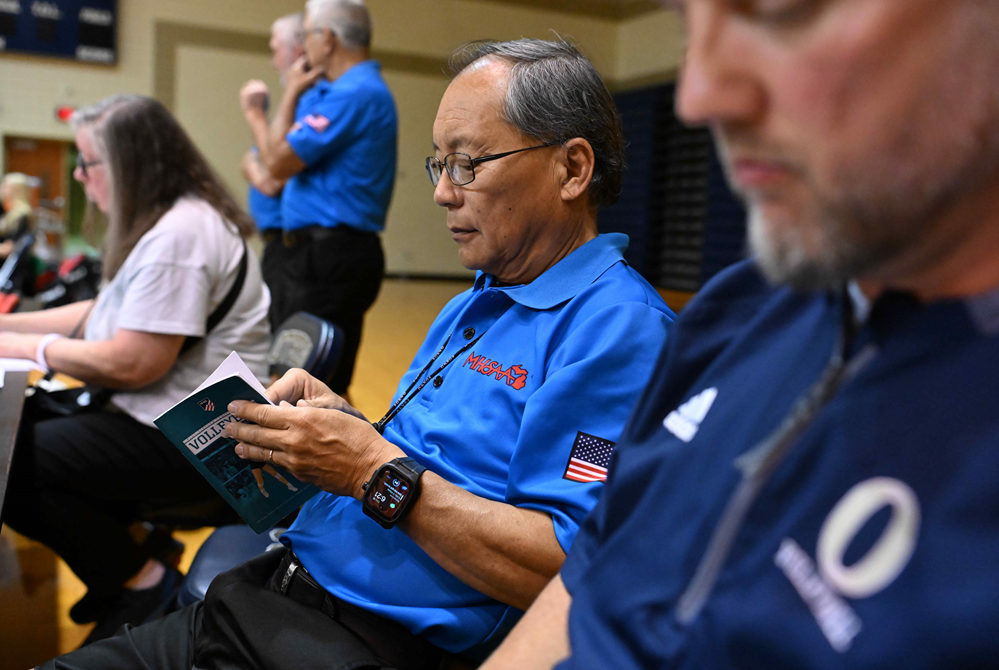
Be the Referee: Ratings
January 5, 2017
This week, MHSAA assistant director Mark Uyl explains how Michigan's high school officials are evaluated for their game performance.
Be The Referee is a series of short messages designed to help educate people on the rules of different sports, to help them better understand the art of officiating, and to recruit officials.
Below is this week's segment – Ratings - Listen
Just about every sports fan, at one time or another, has left a game wondering, “How do the officials get evaluated or graded for their performance during a game?” At the high school level, the MHSAA has the school rating system to where following each game both teams submit a rating for the official’s work. The rating, on a 1 through 5 scale, is then sent to the MHSAA Office and these ratings are compiled over a three-year period. An official then has a rating average, and the schools can also indicate areas for improvement or growth that they deem are appropriate. Those rating numbers then determine what officials are first used in postseason play.
Past editions
Dec. 22: Video Review - Part 2 - Listen
Dec. 15: Video Review - Part 1 - Listen
Dec. 8: Registration - Part 2 - Listen
Dec. 1: Registration - Part 1 - Listen
Nov. 24: You Make the Call - Sleeper Play - Listen
Nov. 17: Automatic 1st Downs - Listen
Nov. 10: Uncatchable Pass - Listen
Nov. 3: The Goal Line - Listen
Oct. 27: Help Us Retain Officials - Listen
Oct. 20: Point After Touchdown - Listen
Oct. 13: Untimed Down - Listen
Oct. 6: Soccer Penalty Kick Change - Listen
Sept. 29: Preparation for Officials - Listen
Sept 22: You Make the Call: Returning Kickoffs - Listen
Sept. 15: Concussions - Listen
Sept 8: Equipment Covering the Knees - Listen
Sept. 1: Play Clock Experiment - Listen
Aug. 25: Clipping in the Free Blocking Zone - Listen

Be the Referee: Volleyball Serve
By
Paige Winne
MHSAA Marketing & Social Media Coordinator
October 22, 2024
Be The Referee is a series of short messages designed to help educate people on the rules of different sports, to help them better understand the art of officiating, and to recruit officials.
Below is this week's segment – Volleyball Serve - Listen
We’ve got a volleyball question for you today.
At the moment of the serve, which statement is NOT true:
- All players, including the libero, shall be in the correct serving order.
- All players, including the libero, are not required to be in the correct serving order.
- No player, other than the server, may have any part of the body touching the floor outside of the boundary lines.
- All players, except the server, shall be within the team’s playing court and boundary lines.
If you said – all players, including the libero, are not required to be in the correct serving order – you are correct.
At the moment of serve – all players must in the correct serving order and only the server can be outside of the playing court and boundary lines.
Previous 2024-25 Editions
Oct. 15: "You Make the Call" - Soccer Offside - Listen
Oct. 8: Roughing the Passer - Listen
Oct. 1: Abnormal Course Condition - Listen
Sept. 25: Tennis Nets - Listen
Sept. 18: Libero - Listen
Sept. 10: Cross Country Uniforms - Listen
Sept. 3: Soccer Handling - Listen
Aug. 24: Football Holding - Listen
(Photo by Gary Shook.)

